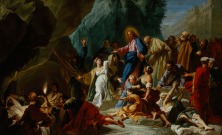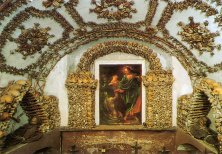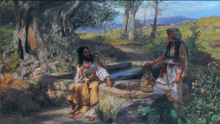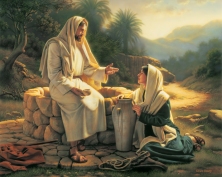Today’s meditation on the Raising of Lazarus (John 11) is the last post in my series on the scrutinies, which began with the Third Sunday of Lent. I recommend reading the first post in the series, “What are the scrutinies?” before reading this one.
Meditation for the Fifth Sunday of Lent: the Third Scrutiny
Over the last two weeks, you were invited to place yourself in the shoes of a beloved soul, who had a unique encounter with Christ: two weeks ago, it was the Samaritan Woman at the Well; last week, the Man Born Blind. It is possible for you to do this, because you are the beloved soul in Christ’s eyes. It is he who invites you to this encounter. More…






